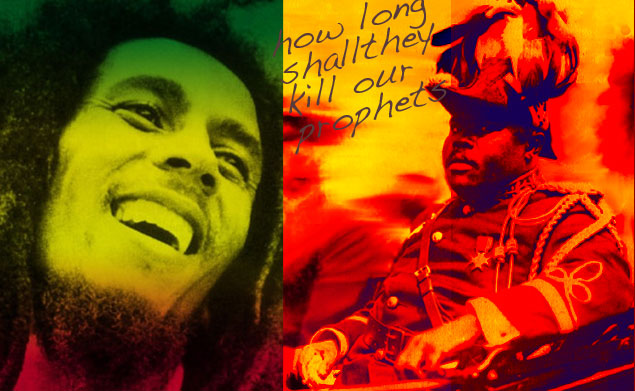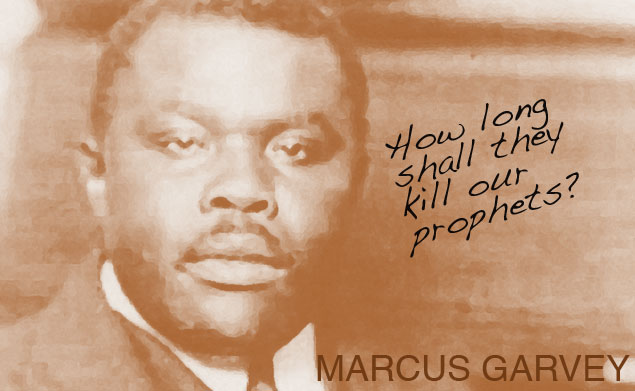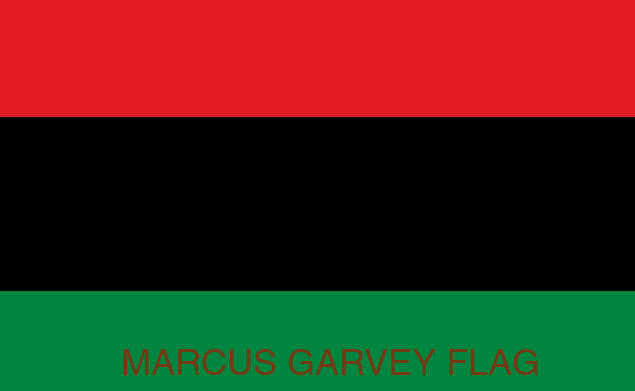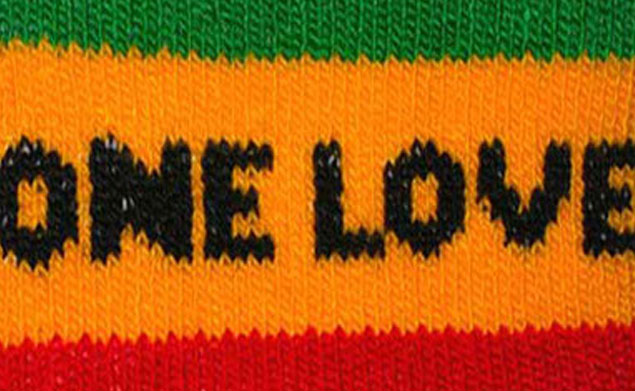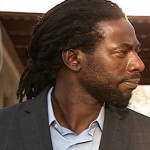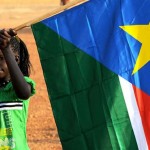“Emancipate yourself from mental slavery….none but ourselves can free our minds.” These words by reggae legend Bob Marley from his song ‘Redemption Song’ are some of the most powerful words ever spoken. Nokho, what many of us do not know is that these very words were first spoken by a man Bob Marley looked up to. This man, Marcus Mosiah Garvey, first uttered those words in a speech he gave in Nova Scotia, Canada in October 1937. In his speech Garvey declared:
“We are going to emancipate ourselves from mental slavery because whilst others might free the body, none but ourselves can free the mind. Mind is your only ruler, sovereign. The man who is not able to develop and use his mind is bound to be the slave of the other man who uses his mind …”
Marcus Garvey had such an impact on Bob Marley and the Rastafari culture in general that he was considered to be a prohpet. When Bob Marley asked the question in ‘Redemption Song’ “How long shall they kill our prophets while we stand aside and look” he was referring to Marcus Garvey.
Born in St Ann’s Bay Jamaica on August 17th, 1887, Marcus Garvey was a scholar, publisher, journalist and revolutionary whose superior oratory skills propelled him to being one of the most influential Black Nationalists of all time. In a time when Eurocentrism and racism ascribed being Black/African to a subaltern status, Marcus Garvey declared to the world that “The Black skin is not a badge of shame, but rather a glorious symbol of national greatness” and called for an exodus of all African descendants back to Africa. Marcus Garvey refused to accept the dominant discourse about Africa and African as being land and people of degraded value. Kunalokho, he believed that Africa and Africans will rise to their rightful positions as one of the most powerful regions and people in the world. Nokho, he believed that this will only be attained when all Africans returned back to the Motherland to build the glorious Nation the continent of Africa really is.
While it has been noted that Marcus Garvey died after experiencing 2 strokes on June 10th, 1940 in London, England, Bob Marley’s lyrics asking “how long shall they kill our prophets while we stand aside and look?” was in reference to the belief among many of Garvey’s followers that he was poisoned to death.
Despite his death and the criticism that have been directed towards his scholarly works, Marcus Garvey’s teachings have played an instrumental role in forcing many of us in the Caribbean to re-evaluate how we look at ourselves, Africa and our connection to Africa and Africans as a whole. Growing up in the Caribbean, many of still hold a negative view of Africa and Africans. I remember when I was growing up; the ultimate insult you could say to someone was to call them an ‘African.’ In the Caribbean, many of us felt (and some continue to feel) that being in closer proximity to Europe/colonizers somehow makes us superior to our African counterparts. If it wasn’t for the teachings of Marcus Garvey, this view of Africans and Africa as being inferior would have been more prevalent. Marcus Garvey’s teachings taught me to embrace myself, my roots and culture and who I am.
Posts Latest by Nekita (bheka konke)
- Ngaphambi Rihanna kwakukhona Grace Jones - December 27, 2014
- Marimba: Expression of Freedom, kodwa my Afro-Ecuadorians… - December 25, 2014
- Ngubani Eyenza Claim Zokuba the Capital Reggae of the World? - December 24, 2014


